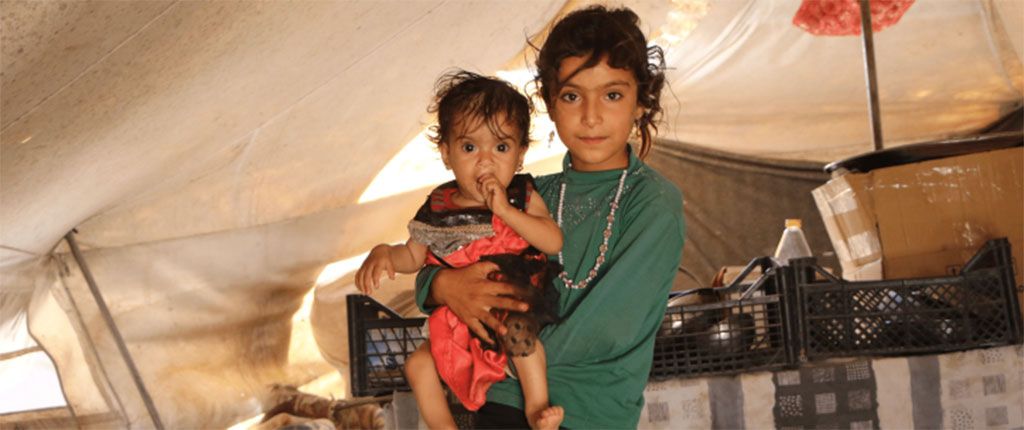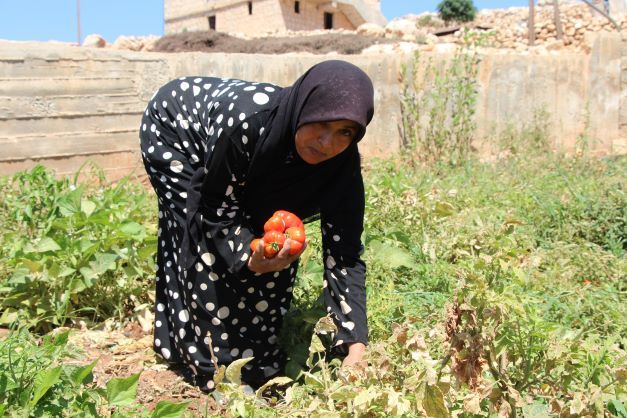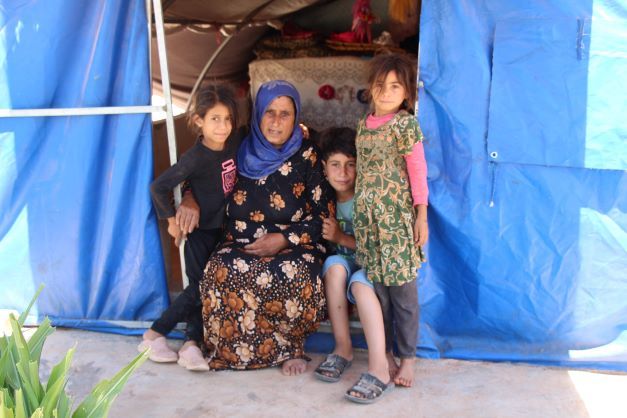
Syria experiences the worst famine in recent history
War, drought and rising prices are the triggers of the hunger crisis
"Since my husband died, we lack everything and especially need bread." Umm Ibrahim lives with her four children in the town of Al-Qantara in the northern Idlib region of Syria. She cultivates a small plot of land there, but the poor harvest has put the family in financial trouble.

"The plants need a lot of water to grow. But we don't have enough water, so our harvest is poor." Yet, the 46-year-old works hard to provide for her family, at least during harvest time. The rest of the year, they rely on humanitarian aid. "When one of my children asks for something and I can't give it to them, my heart is bleeding. I really hope they will have a brighter future."
In northwestern Syria, more than four million people are in dire need of humanitarian assistance. War has raged in their country for more than eleven years. For many people in the Idlib region, in the northwestern part of the country, it has been one of the most difficult years ever: the risk of poverty and hunger has never been that high. The economic situation of the people has been further deteriorated due to a ongoing drought and several failed harvests. The food sector is on the verge of collapse and more and more people are going hungry. Some 12.4 million people in Syria - more than 60% of the population - are experiencing acute food insecurity. That's a 51 percent increase compared to 2019.
Internally displaced people are facing a particularly precarious situation

The situation is particularly difficult for the approximately 1.5 million internally displaced people living in the temporary refugee camps. There is hardly any work there and people rely on the monthly food distributions, which, however, are barely enough to feed larger families. The figures are frightening: around 79 percent of the people in the camps suffer from malnutrition. The 33-year-old Doula lives with her six children in a camp near the city of Kafr Lusin. Her baby daughter Zainab was born malnourished. "As we were fleeing, we didn't eat for two days. The children were crying from hunger," Doula explains. The family lives in a provisionary tent, barely protected from the extreme temperatures during summer and winter. "It's so cold in the winter and I can't help the children, even when they are sick. It breaks my heart to see them suffering that much," Doula says.
At least her daughter Zainab, now eleven months old, was able to receive some help at the Kalbet Health Center, a pediatric clinic managed by our Syrian partner organization "Hand in Hand for Aid and Development". Zainab is gaining weight again thanks to the supplementary food she now receives and will hopefully reach normal weight in a few months. "All my children were born during the war. I really hope they can have a normal life someday, just like other children around the world," Doula says.
Our aid in Syria

After eleven years of war, the public health infrastructure in Syria has largely collapsed. A large number of hospitals and medical facilities have been destroyed, and there is a shortage of medicines, medical equipment and staff. In close cooperation with our Syrian partner organizations "Hand in Hand for Aid and Development" and "Independent Doctors Association," we operate and support numerous hospitals, basic health centers and mobile medical teams to improve the health situation of the people in the Idlib region. We are also promoting food security measures by establishing community and home gardens where people can grow their own food.
The distribution of additional food is urgently needed given the rising prices for food and the disastrous food situation. The people living in the refugee camps, who rely on the food distributions, are feeling insecure. The 40-year-old Umm Uday, who was displaced from the city of Homs with her family and now lives in a refugee camp in northwestern Syria, appeals to the international community: "We hear day and night that the provision of humanitarian aid will be suspended. We hope you will continue to stand by us and hope that we will survive until we can return to our homes."
(August 2022)








